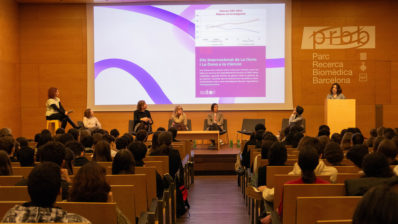The Barcelona Institute for Global Health (ISGlobal) is participating in the new END-VOC project (ENDing Covid19 Variants Of concern through Cohort studies), which starts this May 2022 and will last 3 years.
The aim is to identify as quickly as possible any new variants of the SARS-CoV2 virus that may emerge and to study their pathogenicity, transmissibility, efficacy of treatments and vaccines, etc. in order to decide what impact they might have. To this end, the 19 participating institutions – from Europe, Africa, America and Asia – will contribute data and samples from a series of cohorts (29, so far, spread around the world) to monitor the pandemic globally. Some of these were existing cohorts and some are new.
“Variants are of concern if they have higher transmissibility and produce more severe disease or interfere with diagnostic tests, treatments, or vaccinations due to a greater evasion of the immune system,” explains Dr. Elizabeth Diago, the project manager of the project. “To know this we will sequence and analyse samples from the participants, and we will also use public databases to see which variants are most frequent at any given time.
The END-VOC project will monitor the emergence of new variants of the SARS-CoV2 virus in cohorts around the world.
How the data are obtained depends on the cohort. In some cohorts, samples can be sequenced from anyone in the cohort who becomes infected,
o blood samples may be analyzed to assess immune system responses or previous vaccination or infection. “Apart from the cohorts, there are also two surveillance networks; one that collect samples from infected travellers through the Trop-Net network, and another one in the UK,” Diago adds.
The EU-funded project is led by Dr. Ibrahim Abubakhar of the University College of London. Participating institutions include 10 academic institutions, 3 national public health organisations, 2 clinical organisations and 4 NGOs. From ISGlobal, 8 research groups participate in addition to the Policy and Communication teams, leading 2 Work Packages and multiple tasks.







